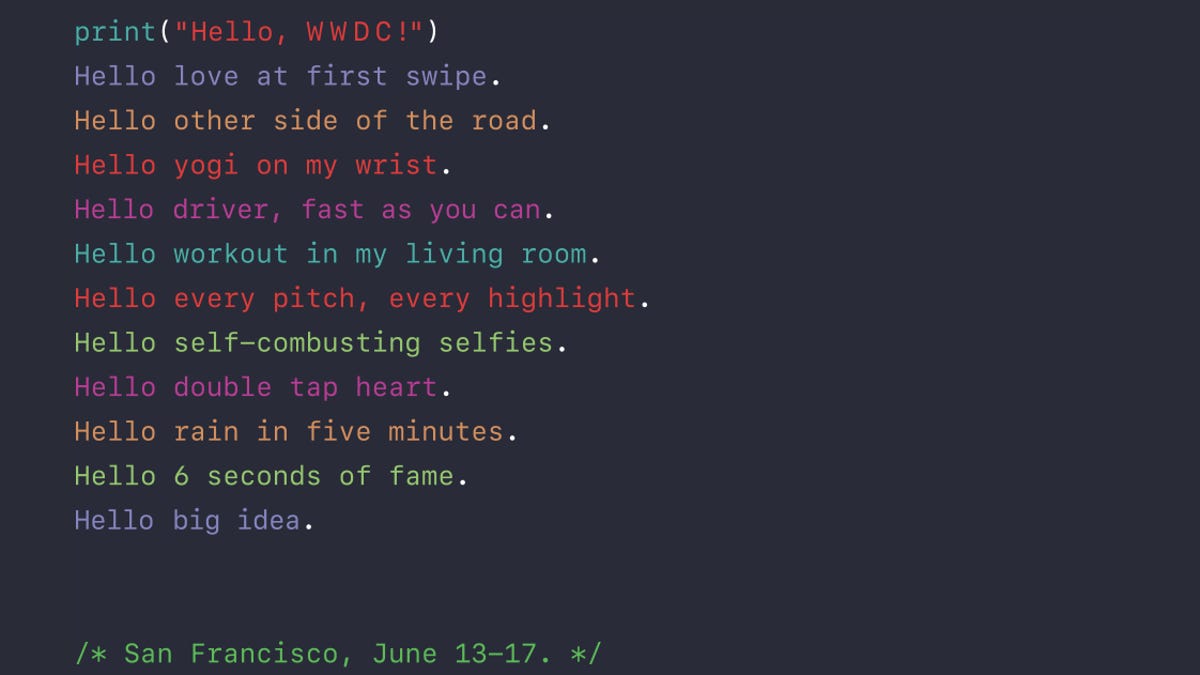Why Siri needs to smarten up, and fast
Apple made the first digital assistant, but it's in danger of falling behind rivals such as Google, Microsoft and Amazon, which have all made huge strides in artificial intelligence.

To hold its own against digital assistants from Google, Microsoft and Amazon, Siri needs an IQ boost.
Last month, Google took the stage in Mountain View, California, to show off improvements to its digital voice assistant. Its signature ability is to have a conversation with it like you would a normal person.
You can ask "Google Assistant" what's on your schedule and then have it text the person you're meeting to say you'll be late. Google remembers your first question, so you don't have to start over with a new command. Like a real person, it builds off what you were talking about earlier.
All that left Apple's Siri looking, well, kinda dumb.
Siri tends to respond only to specific commands, and if you change your phrasing, she gets confused. Even Steve Wozniak, Apple's co-founder and one of the company's biggest fans, thinks Siri hasn't quite nailed it yet.
"Sometimes Siri doesn't get the words right, and I'm pissed," he said at a Salesforce conference earlier this week.
Siri and Google Assistant are part of a new wave toward artificial intelligence -- smart software that lets machines act more like humans -- that has swept up tech giants Facebook, Amazon and Microsoft, along with many others. While Siri came first, with the iPhone 4S in 2011, the lack of significant improvements to the assistant has opened the door for rivals to surpass her. Apple's Worldwide Developers Conference, which kicks off Monday, may be a chance for the company to show that Siri isn't standing still.
"There's pressure because Siri has been around the longest," Creative Strategies analyst Carolina Milanesi said. "They need to do more so that people really want to do more with Siri."
Apple declined to comment.
The competition is already stiff. Microsoft's Cortana works the same across various devices like computers and phones, and Microsoft and Facebook have created "bots" you can chat with to do things like order flowers for your mother. Amazon's Alexa voice assistant has become a popular way to control things in your home, play music and even order pizza through voice commands.
A more useful Siri
Apple is expected to unveil improvements to Siri during its keynote address, including plans to let any third-party developer integrate Siri into an app. Today it's only Apple's apps and a select number of third-party services such as Yelp that work with Siri. Asking the voice assistant to "call me an Uber," for instance, brings back the response, "Sorry, I don't have a phone number for Uber -- Headquarters."
Depending on how it's implemented, though, third-party access to Siri could be confusing. For instance, if you say "play the new Taylor Swift album" today, Apple Music immediately starts playing the music. But if Siri soon works with Spotify, YouTube and other music apps, it may not know the best way to play those songs.
"How does Siri make the connection between what the user wants and the specific app [to do it]?" Jackdaw Research analyst Jan Dawson asked.
Another Siri improvement people pine for is a consistent experience across devices. When using Siri with the new Apple TV remote, you have to hold down the button during the entire time you're talking. But with the iPhone, you just push and hold the home button for a brief moment before asking your question.
Apple also could bring Siri to the Mac, letting you talk to your computer like you speak to your iPhone or iPad. One possible boost to Siri could come from VocalIQ, a digital assistant company Apple bought last year whose technology specializes in understanding natural conversations. And Apple is working on a device that, like Amazon's popular Echo speaker, lets you interact with your home and other devices through voice commands. (The product likely won't appear at the developers conference.)
The biggest challenge for Apple will be making Siri smarter while still sticking to its vow to protect consumer privacy and security. The Google Assistant is so smart because of how much Google knows about you and other users. Apple doesn't keep as much information, which could limit how useful Siri gets.
Still, analysts say there's plenty Apple can do to make its software more intelligent. And it better hurry.
"It's clear Apple's behind in this area," Current Analysis analyst Avi Greengart said. "But it has a real opportunity here to show off some exciting big developments in iOS."
Tune back to CNET for full coverage from Apple's WWDC 2016.

